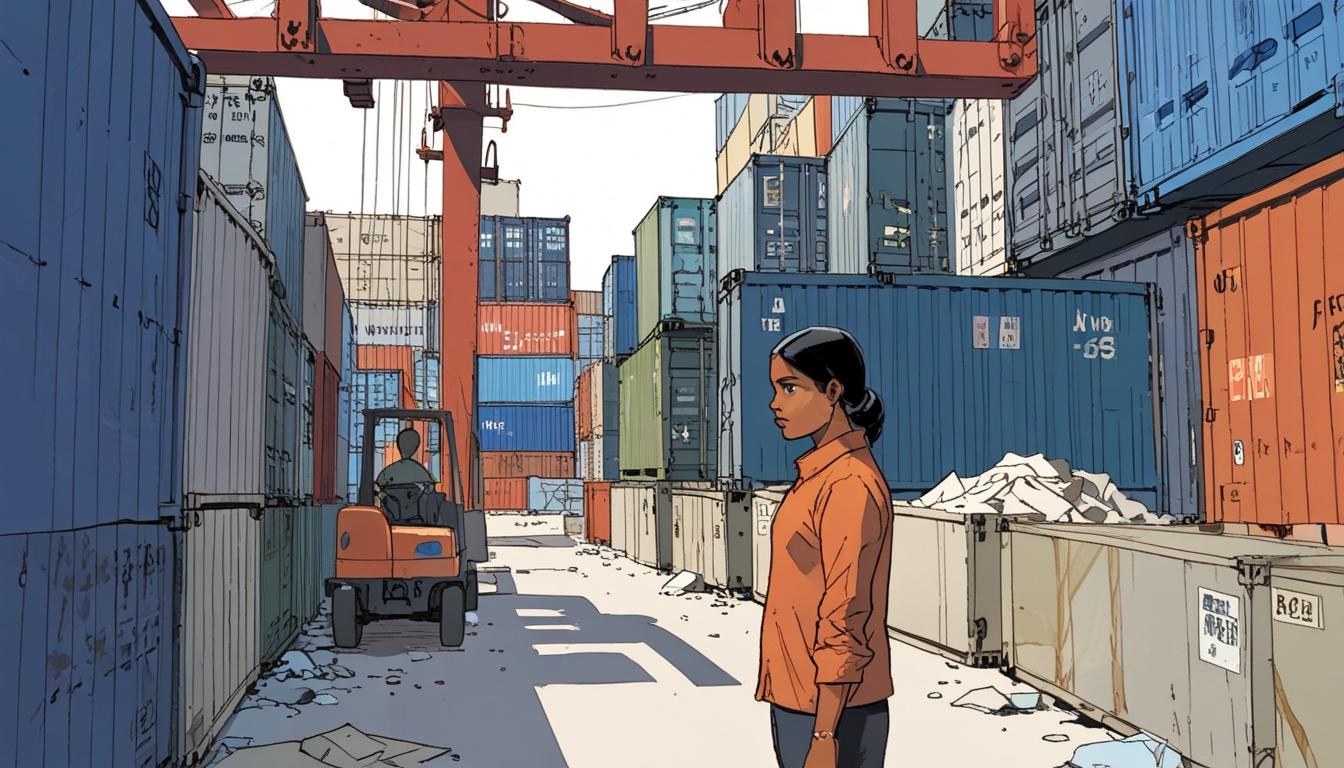Businesses in Bangladesh are preparing for potential economic impacts as trade tensions escalate between India and Bangladesh, marked by a series of reciprocal trade restrictions. Anbarasan Ethirajan, South Asia editor for the BBC, reports that recent developments have stirred concerns among local industries and exporters.
In the preceding month, Bangladesh imposed a ban on land imports of cotton yarn from India to protect its local textile sector from cheaper foreign goods. This decision followed India's abrupt cessation of a transhipment facility that previously enabled Bangladesh to export goods to third countries through Indian ports and airports, a move justified by India citing "congestion." Analysts estimate that this halt could jeopardise approximately $1 billion in potential apparel exports for Bangladesh.
In light of these developments, there are discussions within the Bangladeshi government about extending the trade restrictions beyond cotton imports. Debapriya Bhattacharya, a senior economist with the Centre for Policy Dialogue in Dhaka, articulated a growing sentiment that authorities should reconsider the extensive transit and transhipment privileges granted to India under former Prime Minister Sheikh Hasina’s administration. Bhattacharya noted that there is a "strong view nowadays in Bangladesh that we should also reassess the other transit and transhipment facilities" provided to India.
The diplomatic landscape has shifted since the ousting of Prime Minister Sheikh Hasina in August 2023, amidst massive protests. Currently in exile in India, Hasina is facing demands from Dhaka for extradition to address charges related to crimes against humanity, money laundering, and corruption—allegations she has denied. Meanwhile, India has expressed concerns over reports of violence against the Hindu minority in Bangladesh, describing the killing of a Hindu man as indicative of “a pattern of systematic persecution” under the current interim government led by Nobel laureate Muhammad Yunus.
Despite the controversies, Bangladesh's government denies targeting minority groups, arguing that such incidents are largely politically motivated or ordinary crimes. The Hindu population, constituting less than 10% of Bangladesh's 170 million citizens, has been at the centre of these discussions, prompting a rise in anti-India sentiment among some segments of the Bangladeshi populace. Compounding the tension, Indian media has been reproached for allegedly exaggerating the threats to minorities in Bangladesh.
As public sentiments cool in both countries, analysts caution that escalating rhetoric could further strain trade and economic relations. Currently, alternatives exist for the import of cotton yarn through sea and air, although these methods are generally slower and pricier. In 2024, India had exported cotton yarn worth $1.6 billion (£1.2 billion) to Bangladesh, with a notable third of this volume transported via land ports. The earlier transshipment arrangement allowed Bangladeshi exporters to efficiently route goods to Indian cities for onward air transport to Western markets.
The disruption in these trade routes is being felt acutely by Bangladeshi garment manufacturers. Anis Ahmed, head of the supply chain firm MGH Group, highlighted the setback, stating, "The transshipment suspension is a blow to Bangladesh's fast-fashion export industry. The India route got cargo to Western countries in a week. By sea, it takes up to eight weeks."
As Bangladesh aims to sustain its status as the world's second-largest garment exporter—having shipped $38 billion worth of clothing last year—over $1 billion of this trade historically relied on the India land-air route, which is vital for the country’s fast-fashion sector. However, limited air freight capacity and less sophisticated airport facilities present challenges for direct exports from Bangladesh, amplifying the urgency of resolving the ongoing trade dispute.
Source: Noah Wire Services
